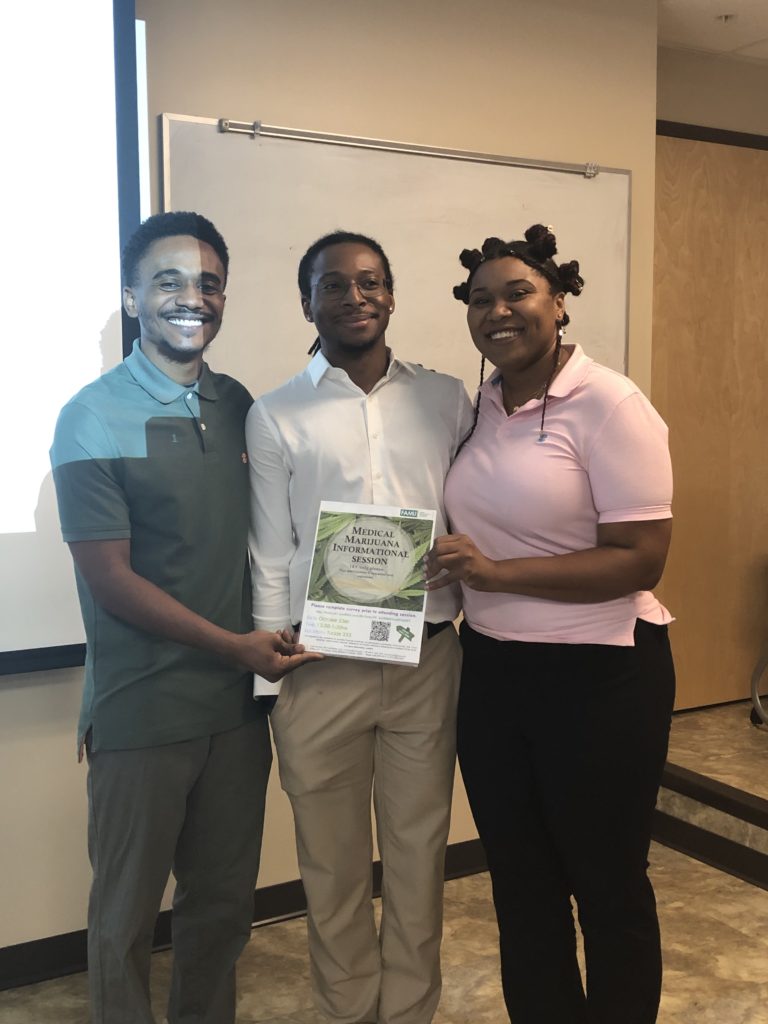Culture | November 6th, 2019
FAMU Students Learn the Psychology and Sociology of Medical Marijuana
By: Akilah Winters

Oct. 23, FAMU students gathered in Tucker Hall for a medical marijuana informational session held by Novell Tani, an associate professor at FAMU’s Department of Psychology and presented by Arie Christon, a Master of Sciences candidate. The session was created to explain the dangers and benefits of medical marijuana and convey the psychology behind the act of using the drug.
Christon and Tani mentioned marajuana can be used for emotional self-regulation, which is a way to manage impulsive behaviors and how people control their own behaviors.
Christon described the active ingredient of marijuana, THC, and how it affects the brain. THC is the psychoactive ingredient in marijuana that mimics similar effects of a natural chemical in the body called anandamide. Anandamide is the chemical responsible for many emotions, such as happiness, relaxation and others that are enhanced when using cannabis.
“People use drugs to either feel different emotions, run from their problems or feel a spontaneous feeling in which they can become hooked on,” said Christon.
Christon also went into detail about how marijuana can affect mental health. He explained how marijuana can make mental illnesses worse.
“We need to understand how common anxiety and depression works; it is important to understand how these things can affect us and our members in our community,” said Christon. “It can help in the short term to get through a presentation, but we have to think how it [marijuana] can affect us in the long run and how it can make matters worse.”
Throughout the session, the idea of a support group along with packets were given out to people who may be struggling with substance abuse of marijuana.
“You must look at social support in community. The undertone of today’s presentation is the purpose of the rationale of why people engage in substance abuse,” said Tani. “Why are you engaged in any substance use, not just how much?”
Senior psychology student, Alexia Wilson, also attended the event in hopes of learning more about marijuana and its effects in substance abuse. Even though, she is skeptical of medical marijuana due to the history of black people and the medical field, she came to the event to help her understand her own issues.
“I don’t trust [medical marijuana] because in history, the medical field has never been too respectful to black people. I want to learn what the studies show, the unethical and ethical sciences, and how it will impact our community,” said Wilson.
Towards the end of the event, students were encouraged to complete a pre and post survey in order to be eligible to win a possible financial incentive for attending and participating in the session.





